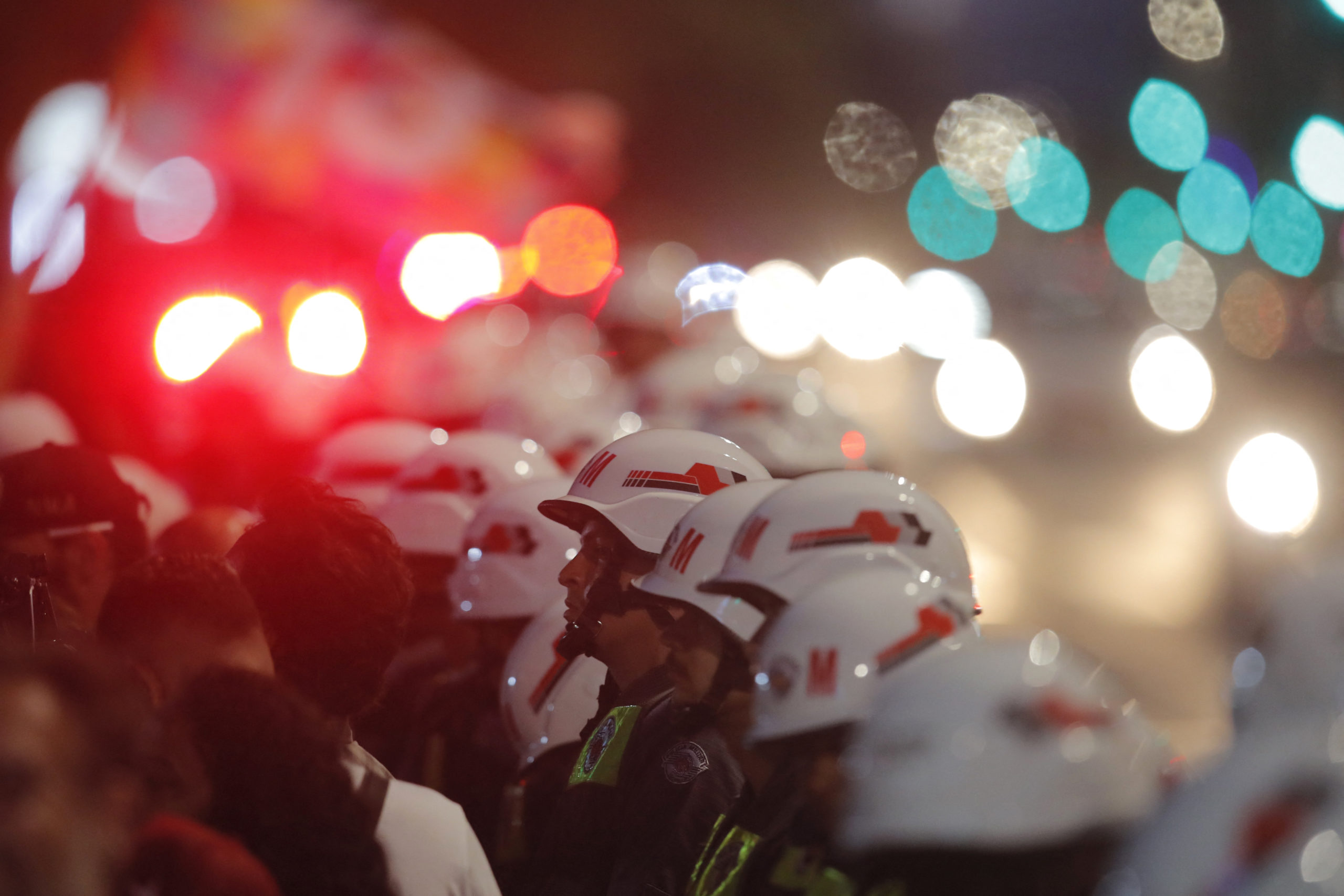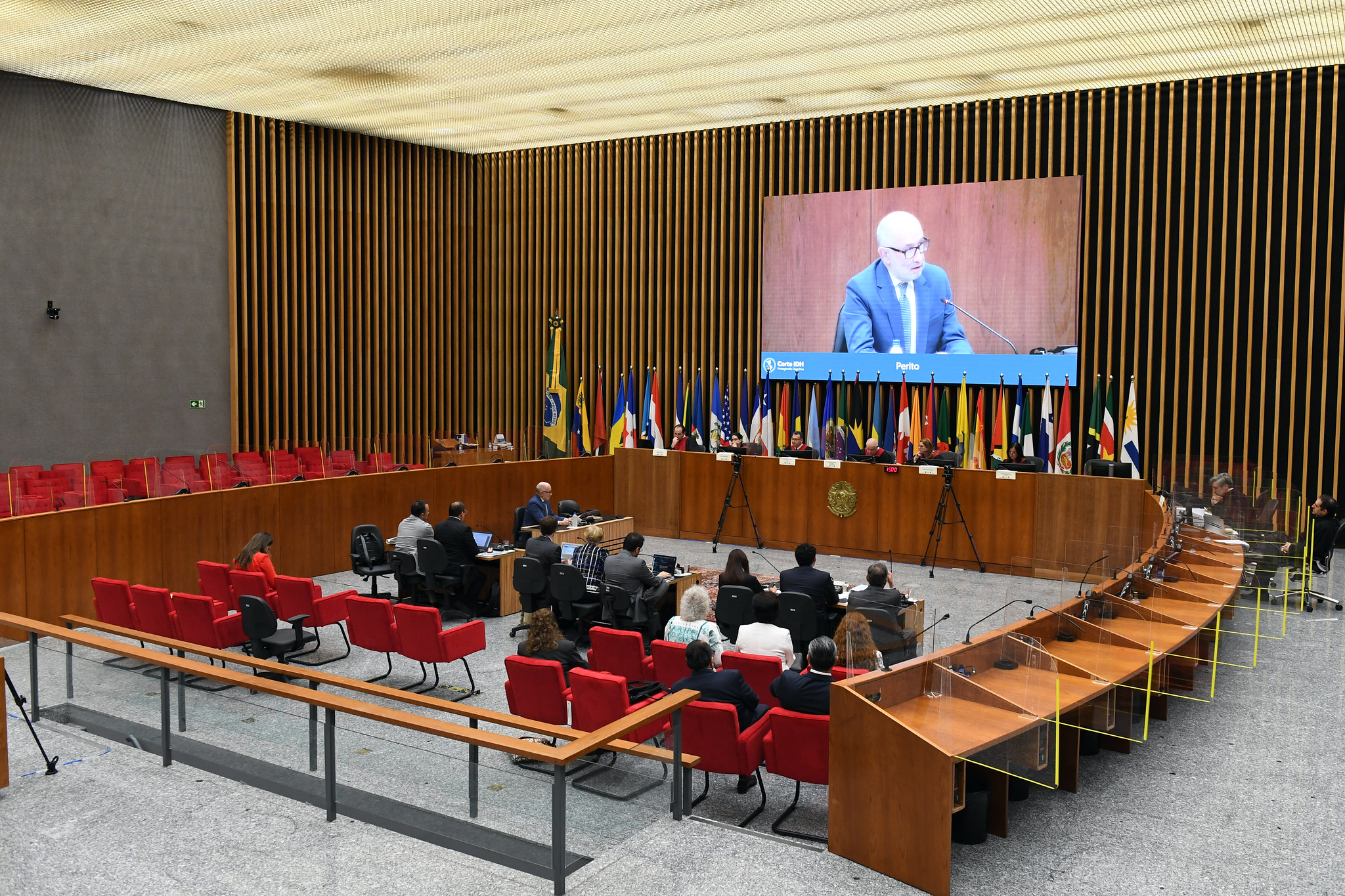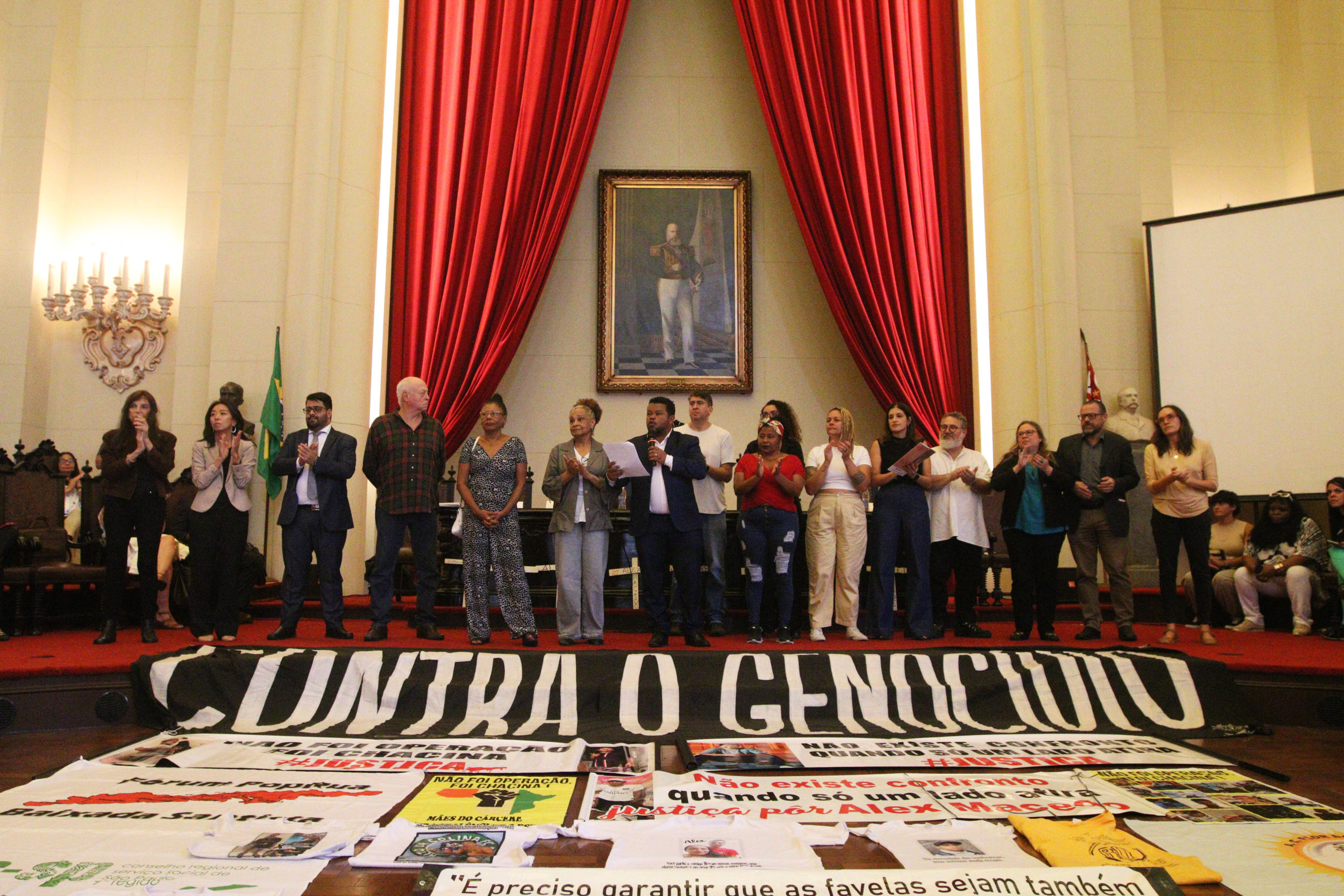UN on Mariana: “catastrophic”
Rapporteurs level harsh criticisms against companies and government; say steps taken were “clearly insufficient”
.jpg) On the morning of Wednesday, November 25, the United Nations spoke out for the first time, through two of its special rapporteurs, on the “catastrophic collapse” of the tailings dam owned by the mining companies Vale and BHP Billiton in the town of Mariana, Minas Gerais, in early November. The tragedy killed at least eight people and another eleven are missing.
On the morning of Wednesday, November 25, the United Nations spoke out for the first time, through two of its special rapporteurs, on the “catastrophic collapse” of the tailings dam owned by the mining companies Vale and BHP Billiton in the town of Mariana, Minas Gerais, in early November. The tragedy killed at least eight people and another eleven are missing.
According to data compiled by the experts John Knox, special rapporteur on human rights and the environment, and Baskut Tuncak, special rapporteur on human rights and hazardous substances and wastes, 50 million tons of iron ore waste containing high levels of heavy metals were released into the Doce river.
In recent days, this wave of toxic waste – the equivalent of 20,000 Olympic swimming pools – reached the coastline of the state of Espírito Santo. Along its way, it contaminated land and water and killed countless animals. The scale of the disaster is still uncertain.
The rapporteurs did not hold back their criticism of the response by the federal government and the companies responsible for the dam. “It is not acceptable that it has taken three weeks for information about the toxic risks of the mining disaster to surface,” they said. “The steps taken by the Brazilian government, Vale and BHP Billiton to prevent harm were clearly insufficient.”
According to Knox and Tuncak, the case serves as a “tragic example of the failure of businesses to adequately conduct human rights due diligence to prevent human rights abuses”. They also asked the Brazilian authorities to assess whether the country’s mining laws are consistent with international human rights standards, “including the right to information”.
Together with partner organizations, Conectas asked the UN Working Group on Business and Human Rights – which will visit Brazil from December 7-16 – to give priority attention to the disaster in Mariana. Emphasizing that the bursting of the dam represents one of the worst social and environmental tragedies in Brazilian history, the organizations warned of the growing threat to the populations living around major mining projects on account of more lenient environmental licensing rules.
“The human rights violations resulting from the bursting of the dam are incalculable, in particular the violations of the right to housing, health and access to water and information,” said Juana Kweitel, program director at Conectas Human Rights. “This catastrophe could have been prevented or minimized with strict licensing rules, proper oversight and a contingency plan.”
Click here to read the full statement from the UN.


